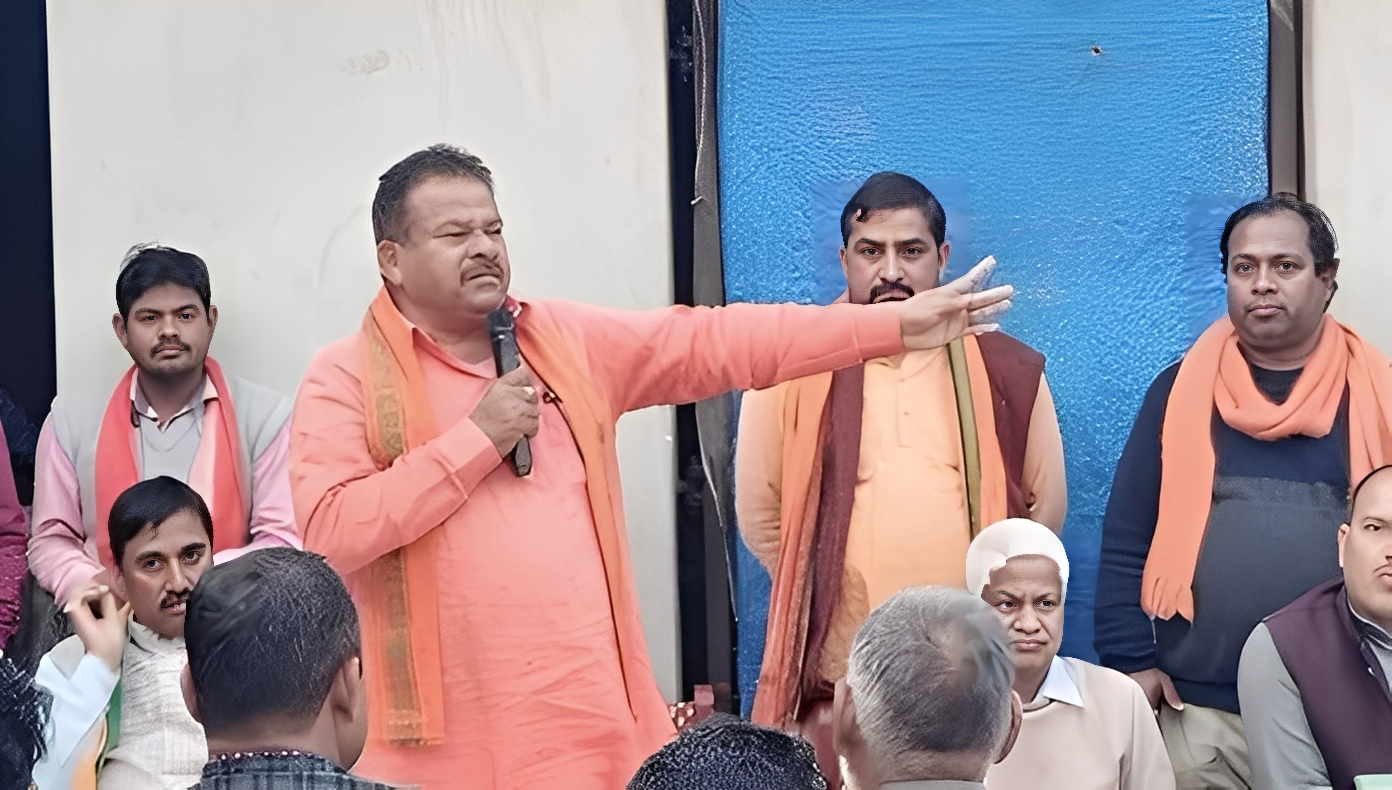
Elham Asaad Buaras
A former lawmaker from India’s ruling Bharatiya Janata Party (BJP) has drawn widespread condemnation after a video surfaced showing him urging Hindu men to “bring Muslim girls” in return for government jobs.
Raghvendra Pratap Singh, a former BJP Member of the Legislative Assembly (MLA) from Domariyaganj in Uttar Pradesh, made the inflammatory remarks during a public gathering on October 16.
In the video, which quickly went viral on social media, Singh can be heard saying, “The Hindu boy who brings a Muslim girl, we will arrange a job for him.” His comments were met with chants of “Jai Shri Ram” (Glory to Lord Rama), a slogan commonly used by Hindu nationalist groups, as he asked the crowd, “How many young men are ready?”
Although Singh no longer holds public office, he remains an influential BJP figure in the region. His statement has reignited concerns about the normalisation of hate speech and anti-Muslim rhetoric under Prime Minister Narendra Modi’s government.
The remarks provoked an immediate backlash from opposition parties and civil society. Sanjay Singh, national spokesperson for the Aam Aadmi Party (AAP), condemned the comments as “a direct incitement to criminality” and called for urgent police action.
“If a leader publicly urges abduction and forced conversion, the law must follow,” he posted on X. “We cannot have a double standard where the UP police file cases against Muslims on flimsy grounds but look the other way when Hindu leaders incite violence. Arrest him now or the claim that law is equal for all will ring hollow.”
He went on to question the moral implications of the statement, adding: “Which Hindu parent would want their son to be celebrated for abducting a girl? Is this the identity we want for Hinduism — one tied to coercion and criminality?”
Legal experts and human rights advocates said the remarks, if verified, could amount to criminal offences including incitement, abduction, hate speech, and attempted forced conversion.
“Such speeches are not mere rhetoric; they endanger Muslim women and legitimise criminal acts,” said a local human rights lawyer. “Authorities must file a case and ensure these provocations don’t translate into real-world violence.”
The controversy fits into a wider pattern of hate speech by Hindu nationalist figures in northern India, particularly in Uttar Pradesh and Madhya Pradesh. In recent years, several Hindutva leaders have been recorded offering money, rewards, or government jobs to Hindu men who “trap Muslim girls” or marry them.
Such rhetoric is often justified as retaliation against the so-called “love jihad” conspiracy theory, a debunked narrative alleging that Muslim men woo Hindu women to convert them to Islam. Activists say this discourse has evolved into what is now referred to as the “Bhagwa Love Trap”, in which Hindu nationalist networks allegedly encourage Hindu men to target Muslim women online and offline as a form of revenge or “reclamation”.
Reports indicate that some of these groups operate through social media, training participants to create fake profiles, pose as Muslims, and lure Muslim women into relationships before revealing their true identities. Victims who resist are often humiliated or threatened, according to women’s rights campaigners.
“Such organised harassment not only fuels communal hatred but also exposes Muslim women to serious psychological and physical harm,” said one activist.
Critics argue that Singh’s remarks underscore a broader culture of impunity for hate speech in BJP-ruled Uttar Pradesh, governed by Chief Minister Yogi Adityanath. Opposition parties and rights groups have long accused the state government of selectively applying the law, using police powers to target Muslims and political dissenters while ignoring inflammatory statements from Hindu nationalist figures.
Uttar Pradesh, India’s most populous state, has witnessed a marked rise in anti-Muslim violence, hate speech, and punitive demolitions targeting Muslim communities in recent years. Rights organisations, including Amnesty International and Human Rights Watch, have warned that the trend is deepening religious polarisation and eroding the rule of law.
Feature photo: Former BJP lawmaker Raghvendra Pratap Singh, who represented the Domariyaganj constituency in Uttar Pradesh, seen speaking at a public gathering in Dhankharpur village on October 16, 2025, where he allegedly urged Hindu men to “bring Muslim girls” in exchange for government jobs. (Credit: Screengrab))